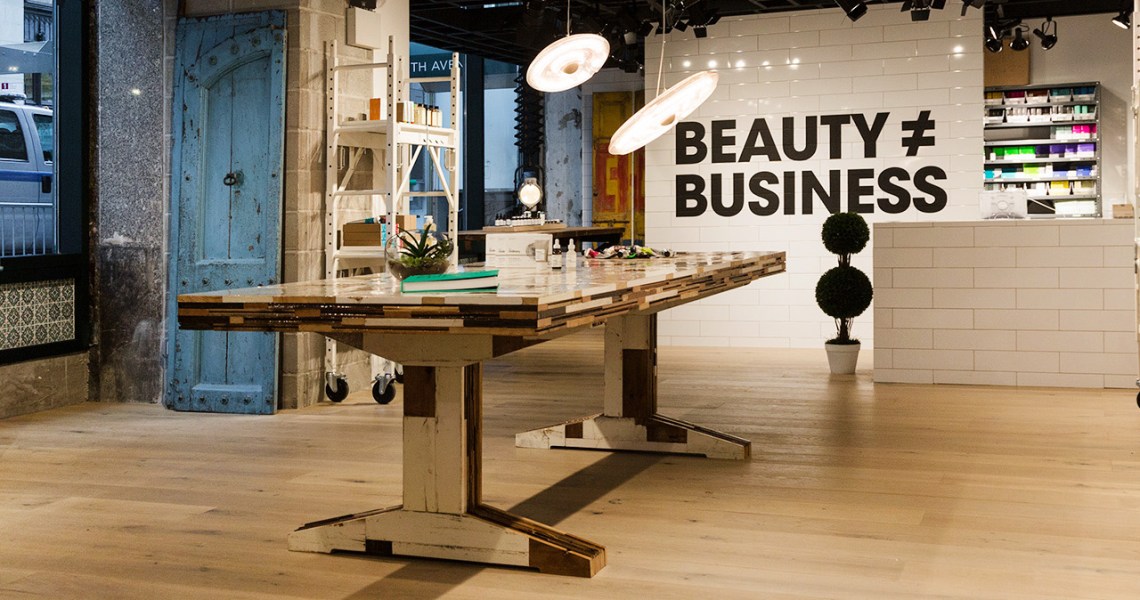Taking its Black Friday boycott into a second year, The Ordinary’s parent company Deciem is solidifying its position as the Patagonia of the beauty world.
Canadian beauty company Deciem announced on Sunday its boycott of Black Friday for the second year in a row, shutting down all physical stores and e-commerce for the day. It follows in the footsteps of Patagonia, which first started the practice in 2016. Like last year, Deciem is making everything on the site 23% off for the month of November, as an alternative.
Black Friday is “something that’s not working for our planet, because it’s just promoting hyper-consumerism rather than people actually buying what they want,” said Deciem co-founder and CEO Nicola Kilner. “The reality is that if you wouldn’t pay full price for it, it’s probably not something that you truly did need in the first place.”
Like Patagonia, Deciem is positioning itself as proactive rather than reactive, as being at the vanguard of social issues becomes increasingly valuable for brands. In addition to the Black Friday boycott, the company is giving employees the day off and providing them with transportation to the polls on the November 3 election day next week. It also recently hired a director of sustainability and is planning to apply to become a B Corp.
“Perhaps 10 years ago, someone would buy a product from a brand,” said Kilner. “Today, someone actually chooses to join a brand. And I think actually the values mean a lot more to an audience than they’ve ever meant before.” She also emphasized the importance the company places on being an early mover in the industry. “For us, it’s always been around trying to not look at competition and focusing on our audiences, focusing on ourselves,” said Kilner. “If we were to just look at what our competitors are doing, we’d end up just being one step behind them all the time.”
The company’s Black Friday promotions in earlier years had focused on only discounting certain products, which Kilner said ran the risk of encouraging people to impulse buy what they didn’t need.
Prior to its decision to boycott the shopping event last year, “Black Friday historically had always been quite a big promotion within our company,” said Kilner. “A couple of years ago, we got to the place of realizing, actually this just doesn’t feel right anymore. We felt like consumers were feeling overwhelmed. Our teams were feeling overwhelmed; we were putting such a huge amount of pressure on those three days at the end of November.”
Ad position: web_incontent_pos1
“Ultimately, if they’re not making that right purchase for them, you’ll never get that consumer loyalty,” she said. As a result, the brand is launching a “Knowvember” campaign to educate consumers about skin care.
Deciem decided on the 23% discount based on a calculation of what would have the same impact on the brand’s bottom line as deeply discounting select items for a few days.
This strategy was successful for the company last year, as it saw a 200% month-on-month lift in sales in November 2019. The discount was especially beneficial for its higher-end brands, with the upscale NIOD receiving a 400% sales increase. It also helped to drive discovery, as 51% of customers buying during the month were new to Deciem. The novel approach to Black Friday was promoted on the brand’s social channels and helped drive engagement — its anti-Black Friday announcement saw a 1662% increase in Instagram shares compared to a regular post. Overall social mentions increased 73% as a result of the campaign.
The pandemic “has given people time to reflect on what they prioritize,” said Kilner. “I do think Black Friday will start to slow down in the coming years. People are becoming more aware of the planet and the damage that hyper-consumerism can do.”




